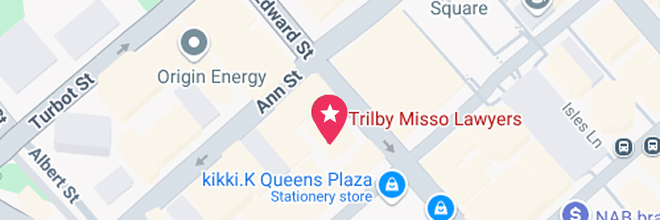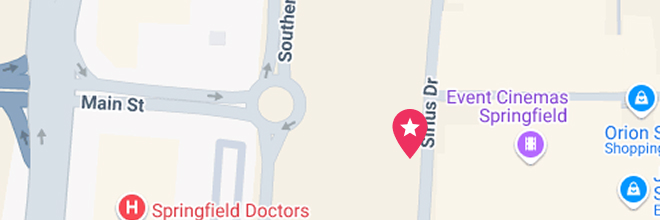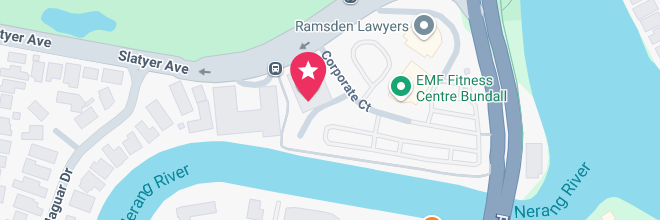Our Brisbane CBD Office
- Suite 400, Level 4/288 Edward St, Brisbane City QLD 4000
- (07) 3910 5470




Car accident compensation in Queensland provides financial support to people injured in road crashes where another road user was at fault. Through the state’s Compulsory Third Party (CTP) insurance scheme, eligible drivers, passengers, pedestrians, and cyclists may be able to claim assistance for treatment costs, lost wages, and other related expenses. Importantly, CTP only covers injuries, not property damage such as repairs to your vehicle.
A car accident claim in QLD is designed to help injured people recover without being left with the financial burden of medical bills or income loss. What you can claim depends on your individual circumstances, including the nature of your injuries, the impact on your ability to work, and the care you may need at home. Each case is different, which is why claims are assessed individually under Queensland law.
The claim process generally involves reporting the crash, identifying the correct CTP insurer, lodging the required forms, attending medical assessments if needed, and negotiating with the insurer. Many claims settle without going to court, but strict timeframes apply, so it is essential to act early. In cases where the other vehicle cannot be identified or was uninsured, claims may be handled through the Nominal Defendant, a government body that steps in under Queensland legislation.
This guide explains who can claim, what compensation may be available, the step-by-step process, time limits, and the evidence you should gather. It also answers common questions about car accident claims in Queensland.
You may be able to claim car accident compensation in Queensland if you were injured and another road user was negligent. The Compulsory Third Party (CTP) scheme covers injuries to drivers, passengers, pedestrians, and cyclists, but does not cover property damage. Even if you were partly at fault, you may still be eligible, although compensation can be reduced depending on the circumstances.
Eligibility for a car accident claim in QLD depends on whether you were injured and whether another person’s negligence contributed to the crash. Those who may be able to make a claim include:
Drivers and passengers injured where another road user was at fault.
Pedestrians struck by a vehicle while walking or crossing.
Cyclists and motorcyclists injured in collisions involving other vehicles.
Dependants of someone fatally injured, who may claim for loss of support.
Queensland’s Compulsory Third Party (CTP) insurance scheme is the framework for car accident compensation. CTP covers injuries only, such as:
Physical injuries (fractures, whiplash, head trauma).
Psychological trauma connected to the crash.
Losses linked to those injuries (income, care, treatment).
CTP does not cover property damage, such as vehicle repairs — that falls under other insurance types.
You may still be eligible to claim even if you contributed to the accident. This is called contributory negligence. In such cases, the compensation amount can be reduced to reflect your share of responsibility. Examples include:
Not wearing a seatbelt.
Riding without a helmet.
Using a mobile phone while driving.
The key factor is whether another road user was also negligent and their actions caused the accident.
If the at-fault vehicle was uninsured or cannot be identified (such as in a hit-and-run), claims may be possible through the Nominal Defendant, a government body that steps in under Queensland law. Strict notice periods apply in these cases, so early action is important.
For more details, see our Hit-and-Run and Uninsured Vehicle guide.
We offer a free consultation to help you better understand your legal options and feel more confident in your way forward. Your consultation is “zero obligation” which means you don’t have to choose us as your lawyer.
In Queensland, car accident compensation through the CTP scheme may cover medical and rehabilitation expenses, lost income, future loss of earning capacity, care and assistance, and out-of-pocket costs. Some claims may also include general damages, which recognise the broader impact of an injury on quality of life. Each claim is assessed individually under Queensland law, and outcomes vary depending on the circumstances.
Compensation may include the cost of:
Hospital treatment, surgeries, and emergency care.
Ongoing rehabilitation such as physiotherapy, occupational therapy, and counselling.
Prescription medications, medical equipment, or aids (e.g., crutches, wheelchairs).
If your injuries stop you working, you may be able to claim:
Past income loss for time away from work during recovery.
Future loss of earning capacity if you cannot return to your usual role or have to reduce hours permanently.
Compensation can cover both paid and unpaid care, for example:
Professional carers assisting with daily tasks.
Family members providing unpaid help with cooking, cleaning, or personal care.
These are everyday costs linked to your injury, such as:
Travel to and from medical appointments.
Home modifications (e.g., ramps or bathroom changes).
Replacement services you can no longer do, like mowing the lawn or cleaning.
Some claims may also include general damages. This recognises the pain, suffering, and loss of enjoyment of life caused by an accident. Queensland uses the Injury Scale Value (ISV) to help assess these types of claims.
We offer a free consultation to help you better understand your legal options and feel more confident in your way forward. Your consultation is “zero obligation” which means you don’t have to choose us as your lawyer.
The car accident claim process in Queensland usually begins with reporting the crash and seeking medical treatment. You then identify the at-fault vehicle’s CTP insurer, complete and lodge the required claim form, and provide supporting evidence. The insurer will assess the claim, arrange medical reviews if needed, and most cases are resolved through negotiation. Strict time limits apply, and unresolved claims may move into pre-court steps.
Always prioritise medical treatment after an accident. Injuries must be documented by a GP or hospital, as these records are essential evidence in any claim.
In Queensland, certain accidents must be reported to police (for example, those involving injuries). Reporting provides an official record that supports your compensation claim.
Gather details such as registration numbers, driver information, witness contacts, and photos of the scene. This information will be used later in the claim.
Each registered vehicle in Queensland has a CTP insurer. The at-fault driver’s insurer will usually be responsible for handling the claim.
You’ll need to complete and submit the Notice of Accident Claim Form to the correct insurer. This form includes accident details, medical certificates, and evidence.
The insurer will assess the claim, confirm liability, and may arrange independent medical examinations to verify injuries.
Once injuries stabilise and liability is clarified, settlement discussions may begin. Most claims are resolved through negotiation rather than court proceedings.
If no agreement is reached, the claim may proceed to pre-court processes under Queensland law before being listed for trial.
We offer a free consultation to help you better understand your legal options and feel more confident in your way forward. Your consultation is “zero obligation” which means you don’t have to choose us as your lawyer.
Strict time limits apply to car accident claims in Queensland. Claims must be lodged within set periods under the Motor Accident Insurance Act 1994 (Qld), and special notice rules apply if the other driver is unidentified or uninsured. Acting early helps preserve your rights, as missing a deadline can limit or even prevent a claim from proceeding.
Car accident claims in QLD are subject to deadlines set by legislation. If these are missed, you may lose the ability to pursue compensation altogether. That’s why it’s important to act quickly and seek advice soon after an accident.
If the at-fault vehicle was uninsured or cannot be identified (for example, in a hit-and-run), claims may be directed to the Nominal Defendant, a government body established under Queensland law. These cases have stricter notice periods than standard claims, so it is crucial to notify as soon as possible.
| Type of Claim | Time Limit | Notes |
|---|---|---|
| Standard CTP claim | Within 9 months of the accident (or within 1 month of consulting a lawyer) | Early notice recommended to preserve rights. |
| Court proceedings | Within 3 years of the accident | Set by Queensland law; applies to most personal injury claims. |
| Nominal Defendant – unidentified vehicle | Notice within 3 months of the accident | If notice is not given within 3 months, you must provide a reasonable excuse. |
| Nominal Defendant – uninsured vehicle | Within 9 months of the accident | Treated differently from unidentified vehicles but still strict. |
Always record the date of the accident and the date you first seek advice.
Notify the relevant CTP insurer promptly.
For unidentified/uninsured crashes, seek clarification on Nominal Defendant notice requirements.
Strong evidence is essential to support a car accident compensation claim in Queensland. Medical records, police details, photos, and proof of lost income all help demonstrate the impact of an accident. Keeping these documents organised from the start makes the claim process smoother and strengthens your position when dealing with the insurer.
To prepare for a car accident claim in QLD, you should keep:
Medical documentation: GP or hospital notes, treatment plans, prescriptions, and medical certificates.
Police details: crash report number or officer details if police attended.
Photos or video: images of vehicles, injuries, road conditions, and traffic signs.
Witness details: names and contact numbers of anyone who saw the crash.
Proof of wages/income: pay slips, tax records, or employer statements to show lost earnings.
Receipts and invoices: travel costs to medical appointments, rehabilitation bills, equipment, or home modifications.
Insurers rely heavily on documentation when assessing claims. Comprehensive evidence helps:
Prove liability and fault.
Show the full extent of your injuries.
Quantify the financial impact on your work and daily life.
If you are injured in an accident caused by an unidentified or uninsured vehicle in Queensland, you may still be able to claim compensation through the Nominal Defendant. This government body acts as the insurer of last resort for hit-and-run or uninsured crashes. Strict notice periods apply, so early action is critical to preserve your rights.
The Nominal Defendant is a statutory body established under the Motor Accident Insurance Act 1994 (Qld). It provides cover when the at-fault vehicle cannot be identified (such as in a hit-and-run) or is not insured under Queensland’s CTP scheme.
You may be eligible to claim through the Nominal Defendant if:
The at-fault driver left the scene and cannot be identified.
The vehicle was registered but uninsured at the time of the crash.
The crash caused injuries to you as a driver, passenger, pedestrian, or cyclist.
Nominal Defendant claims have stricter notice requirements than standard CTP claims. If you wait too long, you may lose the right to bring a claim. This is why acting promptly is essential after a hit-and-run or uninsured accident.
Car accident compensation in Queensland is claimed through the CTP insurance scheme, which covers injuries caused by another road user’s negligence. The at-fault driver’s insurer usually manages the claim.
You may claim medical and rehabilitation costs, lost income, care and assistance, out-of-pocket expenses, and in some cases, general damages under Queensland law.
Strict timeframes apply to car accident claims in QLD, and missing these can limit or prevent a claim. Special rules apply for unidentified or uninsured vehicles.
If the at-fault vehicle cannot be identified or was uninsured, a claim may still proceed through the Nominal Defendant. These cases have strict notice requirements.
You are not legally required to have a lawyer, but legal advice can help you understand entitlements and manage the claim process under Queensland law.
The time to resolve a claim varies depending on injury severity, liability, and how quickly evidence is gathered. Many claims settle before court once injuries stabilise.
Yes, in some cases. Your compensation may be reduced to reflect contributory negligence, but you may still have a valid claim if another road user was also negligent.
No. Queensland’s CTP scheme only covers injuries to people, not repairs to vehicles or property damage. For property claims, you may need to contact your comprehensive or third-party property insurer.
Medical records, police details, and proof of lost income are critical. Photos, witness statements, and receipts for related expenses also strengthen your claim.
Claims are regulated under the Motor Accident Insurance Act 1994 (Qld) and Civil Liability Act 2003 (Qld). These laws set out claim requirements, timeframes, and assessment of damages.
We offer a free consultation to help you better understand your legal options and feel more confident in your way forward. Your consultation is “zero obligation” which means you don’t have to choose us as your lawyer.
Traffic Crash FAQs (when & how to report) →
https://www.police.qld.gov.au/initiatives/road-safety/traffic-crash-faqs
Report a Non-Injury Traffic Crash (Queensland Government) — reporting to police if no one is hurt
https://www.qld.gov.au/law/crime-and-police/register-or-report-to-police/report-a-traffic-incident/report-a-non-injury-traffic-crash
| Locations |
|---|
| Brisbane |
| Springfield |
| Gold Coast |
| Sunshine Coast |
| Gympie |
| Bundaberg |
| Rockhampton |
| Mackay |
Wherever you’re located, help is available to guide you through Queensland’s car accident compensation process.
Kathryn is Trilby Misso’s Chief Executive Officer.
Meet KathrynUse this simple online tool and find out if you have a claim in less than thirty seconds. You can choose to remain anonymous.
Your next step is a small one. All you need to do is give us a call on 07 3910 5470 or complete this form here to arrange a quick chat.
During this initial conversation, we will:

We understand that taking legal action can be stressful, and we’ll do all we can to ease your concerns.
The chat can take place at our place, your place, or by phone. There is no cost, no pressure, and no obligation.
Call 07 3910 5470 or fill out this form, and we’ll get back to you within 2 hours (during business hours). We look forward to meeting you.
enquire now